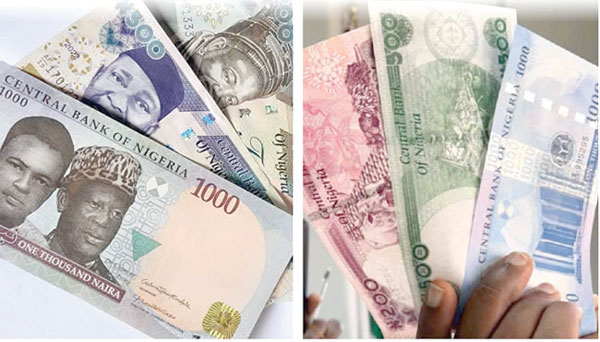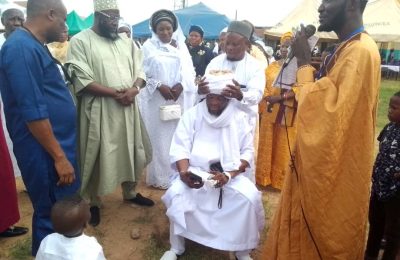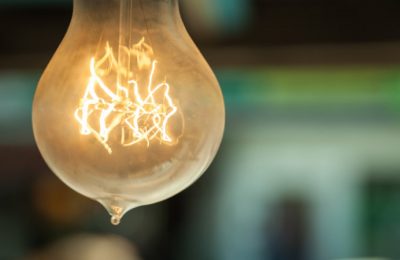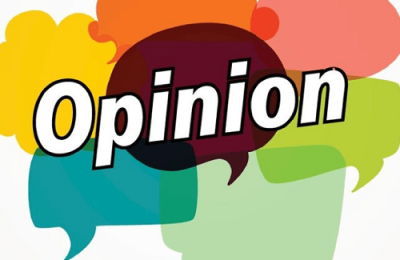The year 2023 is in its twilight. The year will no doubt be remembered as a year of unprecedented happenings in the history of Nigeria’s nationhood. Some of the events that shaped 2023 so far are here compiled by PAUL OMOROGBE.
Naira redenomination and naira scarcity
2023 was the year in which for the first time in history, Nigerians would witness the scarcity of their own currency. It was in October 2022 that then Central Bank of Nigeria (CBN) Governor, Godwin Emefiele, announced that the bank would redesign N200, N500 and N1,000 notes and discontinue the old ones. Little did Nigerians know that the implementation of that policy would precipitate hardship, agony, humiliation, uprising and death. Nigerians did not know that for the first time in their lifetime and in the nation’s history, they would witness the scarcity of their own local currency. Also, little did they know that the use of fintech apps would rise as Nigeria’s banking apps buckled when more people began to use electronic cash transfers.

Emefiele, in October 2022, while announcing the plan to redesign the N200, N500 and N1,000 notes, said the new notes would go into circulation in December while the old notes would cease to be legal tender by January 31, 2023.
The apex bank would later backtrack on its January 31 deadline by extending to February 10 the deadline for the old notes to cease to be legal. The extension was supposed to be a reprieve for millions of Nigerians who could not access the new notes. However, there was no respite. Instead, the situation grew worse as there was literally no naira notes to spend.
‘Reign’ of POS operators

The failure of commercial banks’ apps to successfully complete electronic transfers made business transactions a Herculean task. Point-of-Sale (POS) merchants who charged as high as N1,500 for a N5,000 withdrawal would eventually run out of cash to give. This left Nigerians with no other option but to lay siege to the banks to get cash for their daily needs. There was hardly a facet of human life that was not affected by the cash crunch.
Attacks on banks
Banks across Nigeria were attacked by angry protesters, whom some experts have described as not real protesters but miscreants who joined peaceful protesters to vandalise banks and Automated Teller Machines (ATMs).
Banks in Ibadan, the capital of Oyo State, were attacked on February 3 as a result of demonstrations against cash shortage. Prior to turning violent, protesters had earlier taken to the streets to voice their displeasure over the lack of naira banknotes and fuel.
Before spreading to other areas like Iwo road, Gate bus-stop, and Idi Ape, the unrest began at Agodi Gate, at the intersection that leads to the state secretariat and the Government House. The Dugbe and Queen Cinema neighbourhoods of the town witnessed attacks on bank branches.
On February 7, some protesters forced their way into the premises of the First Bank branch in Lafenwa, Ogun State, where they destroyed the Automobile Teller Machines.
On February 15, protesters, who the Police would later describe as criminal elements, attacked and burnt two banks and two vehicles in Udu Local Government Area of Delta State.
A police spokesperson in the state, Bright Edafe, in a Twitter post, said some youths set ablaze two banks and two vehicles in Udu Local Government Area in the state.
The vehicles were set ablaze at a road junction in Udu, according to a report by the News Agency of Nigeria.
Video clips that were trending online at the time showed that the violent protests also spread to Warri, and banks were vandalised.
The same day, there were a number of violent protests in Benin City, Edo State. Ecobank, First Bank, and UBA were among the banks attacked by the rioters, according to Chidi Nwabuzor, the state police spokesperson.
“They entered the banks’ premises, destroyed the ATM machines, the buildings, the window glass, and others,” he said.
In a video clip about the Benin riot that went viral on social media, a bank employee was seen crying out in fear as security agents used tear gas to disperse the rioters who were attempting to enter the bank.
On the same day, some youths in Uyo, Akwa Ibom State, blocked a major road leading to the CBN branch and other banks by building bonfires out of discarded tires.
Prior to losing control and blocking the road, the youths had peacefully gathered in large numbers in front of the CBN branch on Udo Udoma Avenue to voice their displeasure over the shortage of the new notes.
On February 17, when protests broke out in Epe axis of Lagos, banks like Zenith, Access and Keystone were attacked; their building windows were broken, and some sections were set on fire. At that time, Benjamin Hundeyin, the public relations officer for the Lagos State Police Command, confirmed the attacks.
According to sources, since the attack, most banks in the area have shut down, and there are hardly any banks open for business in the area as of the time of filing this report.
Three days after the Epe attacks, the Sagamu area of Ogun State was rocked by yet another round of protests over the lack of new naira notes. This time, Union Bank, First Bank, and Keystone Bank branches were heavily targeted by the attackers. Witnesses claim that the bank buildings were burnt down, along with the valuables that were housed inside. The enraged crowd also destroyed ATMs that were connected to the branches.
“They attacked Union Bank and First Bank as well as Keystone Bank. We are there right now,” a witness said in a video that trended at the time.
Abimbola Oyeyemi, the state’s police spokesperson, confirmed the development and promised police intervention, which eventually came too late because the bank branches had been severely attacked.
Three commercial banks in Port Harcourt, the capital of Rivers State, were destroyed by thugs on the same day. First Bank in Churchill and Keystone Bank on Aggrey Road, both located in the old Port Harcourt Township, were among the affected banks. Angry customers had destroyed the First City Monument Bank at Rumuokoro in the state’s Obio/Akpor Local Government Area the day before.
Both First Bank and Keystone Bank were under siege from the customers, but as the protest erupted, various gangs of hoodlums from the waterfront stormed the banks. Stones were thrown at the Automated Teller Machines and other buildings of the First Bank. The employees fled for their lives as the thugs tore down the bank’s gate and forced their way into the banking hall. They stole laptops, water coolers, computer monitors and other things from the hallway. The two ATMs at the Keystone Bank location on Aggrey Road were destroyed.
According to experts, both the bank customers and the banks will pay a steep price for these destructions. For instance, attacks on banks may prevent the branches from opening for a while, depriving the local populace and bank clients of banking services. The destruction has a high financial cost for the banks because it will cost a lot of money to repair and restore the attacked branches.
According to Oluwole Olusoji, president of the Association of Senior Staff of Banks, Insurance, and Financial Institutions, from the beginning of the attacks until February 16, at least 17 bank branches had been attacked and facilities worth an estimated N5 billion had been lost nationwide.

General election and court judgments
2023 was the year for anther general election. It was time for former President Muhammadu Buhari to finally exit office. It was time a completely new administration had to come into power. The presidential election was set for February 25. Gubernatorial elections across states was set for March 11. For the first time in Nigeria’s democratic history, the each of the top three presidential candidates was the leading candidate in 12 states! Eventually, the Independent National Electoral Commission (INEC) declared Bola Tinubu as the winner of the presidential election. Runners-up were former Vice President Atiku Abubakar, Peoples Democratic Party (PDP), and former Governor of Anambra State Peter Obi, Labour Party. This decision by INEC would be challenged up to the Supreme Court! President Tinubu’s election into office was eventually confirmed by the Supreme Court after months of legal tussle over issues such the authenticity of President Tinubu’s university certificate, his identity and an alleged drugs proceeds forfeiture.
Legal battles surrounding the election of a president of Nigeria were for the first time tabled in a foreign court in the United States. The United States District Court for the Northern District of Illinois has ordered Chicago State University (CSU) to release the credentials of President Bola Tinubu.
Tinubu’s credentials show that he graduated from CSU in 1979 with a bachelor’s degree in business administration, accounting and management; but there have been allegations bordering on discrepancies in his certificate. Abubakar, candidate of the PDP in the 2023 presidential election, had approached the court seeking to compel the university to release Tinubu’s records on the grounds that the documents would strengthen his suit challenging the president’s electoral victory.

Subsidy removal
Hot on the heels of the controversial presidential election results was President Tinubu announcement of the removal of subsidy on petrol in his inaugural speech on May 29. In an article, Nigerian Tribune predicted that as Kenya’s president, William Ruto, announced the removal of subsidy in his inaugural speech, President Tinubu would follow suit. It was not up to 24 hours later that Nigerians began to feel the heat from the subsidy removal announcement. Petrol stations immediately jacked up their prices for the commodity. Some remained closed creating scarcity of petrol across the country.
Mixed reactions trailed the removal of subsidy. According to NOIPolls, a poll posed the question to citizens: “Do you think the removal of fuel subsidy is worth the impact?” NOIPolls analysis shows a mixed reaction as 47 percent of Nigerians believe the removal of subsidy was worth the impact, while 52 percent do not think the removal of fuel subsidy is worth the impact.
In KPMG’s 2023 Survey On Employers’ Response To Fuel Subsidy Removal in Nigeria, the firm noted that: “Although there had been past attempts and discussions on removal of fuel subsidy, the May 29 pronouncement has turned out to be different because it has fully eliminated subsidy, unlike past instances of partial removal. The development took most, if not all employers by surprise. Virtually caught off guard, most employers were uncertain of their response, especially given business challenges within prevailing economic circumstances.”
Following the subsidy removal, the pump price of petrol has increased from between ₦189 and ₦194 per litre as of May 2023 to between ₦580 and over ₦617 per litre presently, depending on location within the country. This represents an increase of up to 218 percent.
According to National Bureau of Statistics, the average cost of intra-city bus transportation in Nigeria has increased from ₦649.59 in May 2023 to ₦1,285.41 in June 2023, representing about 979 percent increase, largely due to the increase in pump price of petrol.
Floating naira and inflation
Another sweeping reform that has rocked personal finances and business operations in 2023 is the floating of the naira. Shortly after the Tinubu administration announced the move in June, the naira witnessed a historic plunge in its value against the US dollar. The currency float was meant to help close the gap between official and black market exchange rates.
“Given that this new rate in the official market is the same as the parallel market, there is no incentive for people and businesses with genuine transactions to patronise the parallel market, hence FX trading activity in the parallel market will slow down significantly,” Abiola Rasaq, an economist and former head of investor relations at United Bank for Africa was quoted on June 14, the day the policy was announced.
It appears, however, that parallel market activity has continued unabated. The British pound appreciated by 38 percent, while the US dollar (USD) appreciated by 37 percent on June 14, the day the Nigerian foreign exchange market was unified.
Sixteen days later, the Pound increased by 20 percent compared to the previous day, while the USD also increased by 29 percent. By the end of July, the official rate had weakened by more than 40 percent since the start of the year.
Nigeria is an import-dependent country. The naira float has affected several businesses because the costs borne by suppliers has been passed on to the final consumers.
The impact of naira float has also been felt by Nigerians seeking personal travel allowance, business travel allowance, and school tuition payments, making the desire to emmigrate or ‘japa’, as it is commonly called, a more expensive venture.
Nigeria’s inflation rate in September rose for a ninth consecutive month to 26.72 percent from an already high 25.8 percent, recorded in August.
“We may actually reach 28-29 percent going by the pattern we’re seeing. The reason is simple: until the exchange rate stabilizes, inflation will not stabilize in Nigeria. We now have the value of naira devalued by over 100 percent between June and today, within the space of four months,” said the chief executive officer of ThinkBusiness Africa, Ogho Okiti.
During an Independence Day broadcast, President Tinubu defended his policies and urged Nigerians to be patient.

Ajaero’s beating and NLC strike
Shortly before the November off-cycle governorship election in Imo State, the president of Nigeria Labour Congress (NLC), Joe Ajaero, was brutalised in his home state of Imo on November 1.
“I can’t explain the beating I received. They tied my hands and dragged me on the floor like a common criminal. I am not even a card-carrying member of any political party as alleged,” he told the press.
Reacting to the event, a statement was issued by Imo Police Public Relations Officer, ASP Okoye Henry.
It partly read that, “It is pertinent to state that the NLC President was in Owerri as part of arrangements of the Congress to mobilise workers for a mega protest rally in the state. In the course of their planning, it was reported that suggestions arose for the lockdown of some essential facilities particularly the airport which led to some workers and other individuals resisting the picketing process leading to scuffles heated arguments, and an eventual attack on the person of the president by a mob.”
Benson Upah, spokesperson of the NLC, said this about the attack on its president: “Up till this moment, there has been no condemnation for what happened. No one has been arrested let alone prosecuted for this heinous act. It is about the right of every citizen to freedom and justice. The issues that led to the movement of NLC and TUC people to Imo, those issues have not been addressed.”
The unions proceeded on a nationwide strike action on November 14 despite an order not to do so by the National Industrial Court of Nigeria. The strike ended the following day after labour leaders met with National Security Adviser (NSA), Nuhu Ribadu.

Mohbad’s death
On September 12, a musician, Ilerioluwa Aloba, popularly known as Mohbad, died in Lagos, at the age of 27. The nurse who administered an injection on him, was arrested and found to be an unlicensed nurse by the Lagos State Police Command.
#Justice4MohBad became a social movement and protest following his death and subsequent allegations about the events that led to it.
MohBad’s record streams increased 702 percent between September 12 and 14 2023, according to TurnTable charts in Nigeria. TurnTable reportedly stated, “The singer’s catalogue of songs collected 8.02 million on-demand streams – up from 999,000 on-demand streams the previous week (September 1 – 7).” On 15 September 2023, MohBad’s single “Peace”, released under Marlian Music reached number 1 on Apple Music in Nigeria.
Police investigation established that the deceased was assaulted and bullied by the duo of Abdulazeez Fashola (a.k.a Naira Marley) and Samson Balogun Eletu popularly called Sam Larry.
This was disclosed by Lagos State Commissioner of Police, CP Idowu Owohunwa, at a press briefing on the outcome of the interim report on Mohbad’s death, held at the command’s headquarters, Ikeja.
A Magistrate’s Court sitting in Yaba, Lagos State, on November 6, granted Fashola, and Sam Larry, bail in the sum of N20 million with three responsible sureties.
YOU SHOULD NOT MISS THESE HEADLINES FROM NIGERIAN TRIBUNE
Primate Ayodele releases 91-page prophecy for 2024
The leader Of INRI Evangelical Spiritual Church, Primate Elijah Ayodele has released his prophecies for 2024 as it is…
NIMC issues new guidelines for date of birth modification
The National Identity Management Commission (NIMC) has issued new guidelines for the modification of…
Sen Natasha spreads Christmas cheer with generous palliatives in Kogi Central
In commemoration of Christmas and New Year celebrations, Senator Natasha Akpoti-Uduaghan (Kogi Central), has put smiles on…
Five Nigerian musicians who had the biggest hit songs in 2023
Nigeria’s music industry had a remarkable year, with talented singers and hit songs making…
History will judge me, I gave Nigeria my best as ‘president,’ IBB declares
Former military president, General Ibrahim Babangida (IBB) has said history will judge him as leader of the country for…
Anthony Joshua beats Otto Wallin in five rounds
Anthony Joshua delivered one of his best displays in recent memory with an impressive stoppage of Otto Wallin in…







